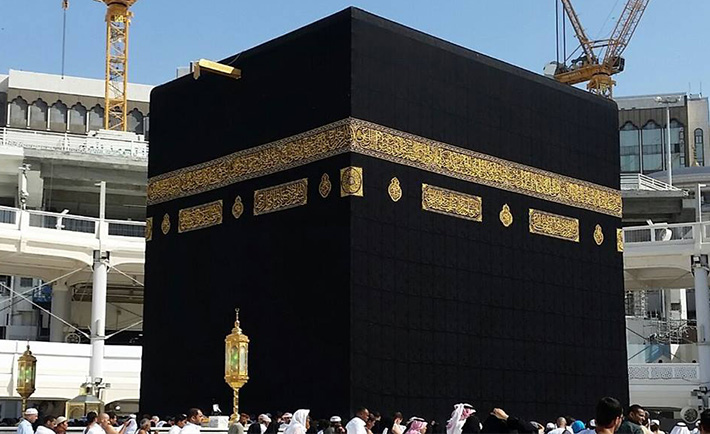Fasting is one of the pillars of Islam, and iftar and suhoor are vital junctions of it. When it comes to etiquettes of an ideal Muslim, we have the best example in the Prophet Muhammad (peace be upon him).
Similarly, when it comes to the etiquettes of iftar and suhoor, we can learn much from what the Prophet Muhammad (peace be upon him) himself did or commanded us to do.
Suhoor
Intention Of Fasting
The intention of fasting has to be done from the night beforehand as the Prophet (peace be upon him) is reported to have said,
“Whoever does not resolve to fast before dawn (fajr), he has no fast.” (Reported by Abu Dawood).
He (peace be upon him) has also said,
“Whoever does not intend to fast during the night, there is no fast for him” (Reported by Al Nasai).
The intention does not have to be verbalized; it has to be in the heart. This is a prerequisite of all other acts of worship and is not only limited to fasting.
Read Also The Fasting and the Fit
Duration of Suhoor
In the Quran, Allah says
“Eat and drink until you can distinguish the white thread from the black thread of dawn” (2:187).
In another report Zayd Bin Thabit (RA) narrated, “We had suhoor with the Prophet (peace be upon him) and then he stood up for ṣalah. He was asked, “How much time was there between the adhan and the suḥoor?”He replied, “The amount of 50 ayahs” (Reported by Bukhari).
The mentioned hadith, indicates that it is recommended to delay the suhoor, but before the adhan of Fajr and by the time one completes the suhoor. Ideally there should be a time gap that amounts to the recitation of 50 verses from the Quran.

Importance of Suhoor
It is sunnah for the fasting person to eat suhoor, as reported in the hadith of Anas ibn Makik (RA) Anas ibn Maalik (RA) “The Prophet the Messenger of Allah (peace and blessings of Allah be upon him) said:
‘Eat suhoor, for in suhoor there is blessing.’”(Narrated by Bukhari and Muslim).
The suhoor also works in differentiating our fasts from the people of the book. The Prophet (peace be upon him) said,
“The difference between our fast and the fast of the People of the Book (i.e. Jews and Christians) is the taking of the saḥr (i.e. saḥoor)” (Reported by Muslim).
Even if one is full or having difficulty to wake up, he should at least have water to follow the sunnah as the Prophet (peace be upon him) has said “Take suhoor, even if it is only a mouthful of water” (Reported by Abu Yahya).
Read also 30 Good Deeds in Ramadan
Iftar
Supplication Upon Breaking The Fast
As always before eating the first morsel of food one should begin by saying which is to say Bismillaah (In the name of Allah).
The supplication, which is one is to say open breaking the fast as reported from the Prophet (peace be upon him) is:
ذهب الظمأُ، وابتلت الروق و ثبت الأجر إن شاء الله
(Thahabath-Thana’u Wabtallatil-‘Urooqu Wa Thabatal-Ajru In Sha’ Allaah.)
“Thirst has gone, the arteries are moist, and the reward is sure, if Allaah wills.”
Narrated by Abu Dawood. Ibn Hajar has said in AlTalkhees AlHabeer: AlDaaraqutni said, its isnaad is saheeh.
There is another supplication often associated with breaking the fast that is narrated in Abu Dawood.
اللهم لك صمت و على رزقك أفطرت
(Allaahumma Laka Sumtu Wa ‘Ala Rizqika Aftartu.)
“O, Allah! For Your sake I have fasted and with Your sustenance I have broken my fast.”
However Shaikh AlAlbaani has classed it as daeef (weak).
Read also How to Become a Cleaner in Masjid al Haram
Hurry To Break The Fast
It is the sunnah of the Prophet (peace be upon him) to hasten to break the fast. He (peace be upon him) has said:
“The people will continue to be fine so long as they hasten to break the fast.” (Narrated by Bukhari and Muslim).
Food To Break The Fast With
In a hadith, as narrated by Anas (R.A.) “The Messenger of Allah (peace be upon him.) used to break his fast with fresh dates before praying; if there were no (fresh dates) then with dry dates, and if there were no (dried dates) then he would take a few sips of water. (Narrated by Abu Dawood and Tirmidhi. It has been classed as hasan in al-Irwa.










